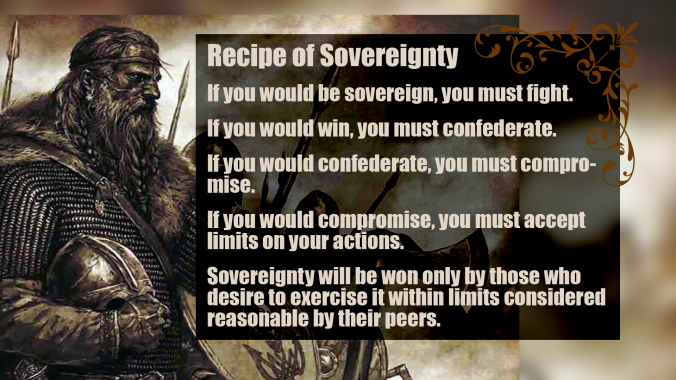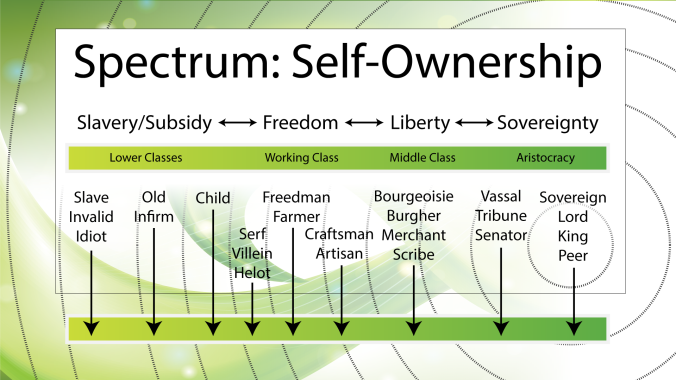August 28, 2016
On Monotheism, Pseudoscience and the Domestication of Man
Rik’s Questions: “I would like to better understand the idea of falsehood and deliberately non empirical acts and how these are actually affecting the genetic property of individuals. I am also interested in the concept of an alternate and competing judicial system to create a stateless private system of government.”
“Truth/Falsehood: How are we susceptible to falsehood, how does this manifest itself? What are the techniques of falsehood”
“Competing judicial systems. What would that look like?”
“Religion: How we can use religion to further the Western evolutionary strategy?”
00:00:00 – Intro
00:01:00 – Formulating and clarifying questions:
How are we susceptible to deception?
How do we prevent deception?
What would a fix to the problem look like?
What is the role of the Church?
00:06:00 – Separation of Law, Science and Religion vs Monotheism
Monotheism = deception/conflation + authoritarianism
00:10:00 – Propertarianism: Natural Law as the Philosophy of the West
Non-Parasitism to keep us in a productive state
00:11:40 – Q: Why are we susceptible to deception? A: Our moral biases.
Distribution of Labor in sensing the world
Division on the Genetic Level:
- Women – Sensitive to children/reproduction means, short-term
- Brother – Hunting partner, mid-term. Seeking production to secure mates
- Headman – Completely defensive, long-term keep tribe competitive to preserve genetic capital
What happens with this division, what is moral depends on which position you hold in the trichotomy above.
Division along Classes and status signals
- Underclass
- Low class
- Middle class
- Upper class
00:17:00 – Rik Storey on Monotheism
00:19:00 – Use of monotheism rather than exchange between classes
Western method of market exchange between classes (government houses echanging on behalf of classes.) Trades of behaviors and rewards = production of commons.
Current state: authoritarianism by the mob.
Market makes use of all information available from all the groups comprisinng the division of labor of cognition
00:23:30 – Propertarianism = Finishing the Enlightenment
Overview of problems with French, German, Jewish, Anglo and Russian Enlightenments
Finishing the Enlightenment:
- End Babylonian, Egyptian, Jewish (Fertile Crescent) Mysticism
- End French Authoritarianism/Moralism: excusing the middle classes to murder and steal from the landed aristocracy (upper classes)
- End German (continental) ‘Philosophy’ (rationalism) (writing fiction/mythology as ‘philosophy’). Germans make fantasy out of verbalism (load, frame, distort meaning). Myth/fantasy/science fiction is fine, just don’t pretend it’s philosophy.
- End Jewish Pseudoscience
– Freud : Authoritarian Psychology (forced conformity)(reaction to Nietzsche)
– Boas : (reaction to Darwin)
– Marx : Myth of Oppression
00:27:00 – The Great Deception vs The Truth
Conflation of Law, Science, Religion, History and Myth/Literature into Monotheism vs Competition/Separation between Law, Science, Religion and Myth.
Deception
- Hermeneutic/Jewish/Talmudic tradition of making excuses.
- Mises: asserts a logic = a science
- Cantor: asserts mathematical platonism = mathematical operationalism. Turms math into a pseudoscience
- Marx: Utopian version of history (Myth of Oppression vs Truth of Domestication)
The Truth
Aryan/Teutonic/Aristocracy = Paternalism = Human Domestication
German oath = Natural Law
- Tell the Truth
- Don’t Steal
- Take responsibility for the commons (reciprocal insurance)
Ending these last mysticisms and pseudoscience will complete the Enlightenment.
Mysticism (religion)/Pseudoscience/Myth(Literature)/History is simply a method of communicating these rules across the division of cognition and labor. Need separate means for the genetic distribution (woman – brother – father)(trichotomy), and need separate means crossing the scale of classes (every 10 points of IQ).
Polytheism = The necessary separate mysticism for the divisions of cognition and labor. Allows for separation and competition between Law, Science, Myth (literature) and Religion.
Monotheism = Authoritarian, one-size-fits-all enforcement = conflation of Law, Science, Myth (literature) and Religion.
Howdy, I’m Butch and you are listening to the Propertarian Podcast #3 on August 8, 2016.
00:34:00 – The Unasked Question: Why didn’t we complete the Enlightenment, and instead fell prey to the Pseudosciences?
Summary: The Problem with Surpassing Human Scale
Answer: Instrumentalism (extension of the perception of truth) is hard. We surpassed human scale (reached biomechanical limits and conceptual limits), now we require instruments (technologies both machine and conceptual) to manage our affairs. These deceptions all pretend to be ‘instrumentation’ (science), but they aren’t because they contain error. This created a market for lies, demand for falsehood. What is then missing? The ability to find and eliminate error. The solution: Testimonialism (the science of falsification or elimination of error). We can complete the Enlightenment by eliminating falsehood from our Science, and writing Law according to scientific principles.
00:43:00 – How to Reduce Error (Testimonialism)(falsification).
Here Curt executes an impressive dissertation on epistemology, to show the roots of the counter to empiricism (and the necessity of instrumentalism ).
We had the Enlightenment (perception of truth) at human scale, but now the challenge is to eliminate error from our instrumentation (our science) to perceive the Universe beyond human scale.
Full explanation of Testimonialism: how we counter error at every level and dimension.
Lack of Testimonialism in Economics.
Spectrum of Truth Tests to Warranty Testimony:
0) Sensible (intuitively possible)
1) Meaningfully Expressible ( as an hypothesis )
2) Internally Consistent and Falsifiable (logically consistent – rational)
3) Externally Correspondent, and Falsifiable ( physically testable – correlative)
4) Existentially Possible (operationally construct-able/observable)
5) Voluntarily Choose-able (voluntary exchange / rational choice)
6) Market-Survivable (criticism – theory )
7) Market Irrefutable (law)
8) Irrefutable under Original Experience (Perceivable Truth)
9) Ultimately Parsimonious Description (Analytic Truth)
10) Informationally Complete and Tautologically Identical (Platonic Truth – Imaginary)
00:56:00 – How do we construct a system of Law?
Rewrite Constititution in Operational Language with Strict Construction
Restore the market for juridical defense
Any legislation must follow natural law and be strictly constructed from it as a defense.
01:02:00 – What is the role of the Church in developing a system of Natural Law?
Church has been lost to Academia, Goverment and Media.
It failed to reform. It needs a reform to incorporate the insight of Natural Law, glory of man our attempt to transcend and sit at the right hand of the Father.
01:08:00 – Revolution
Revolution: state demands (intellectual), religion (spiritual), warrors to raise cost (military movement).
Demand that people must trade rather than steal, is the moral justification for war.
01:10:00 – Is genetic homogeneity a requirement?
Kin selection is real.
High trust society.
—
Rik Storey, blogger, contributor to ProudBoy Magazine and creator of YouTube channel That Libertarian Chap.
You can follow Curt on facebook (just search for Curt Doolittle), and on Twitter @curtdoolittle, and read is writings a Propertarianism.com.
You can follow me on Twitter @PoseidonAwoke and follow my blogs PropertarianForum.wordpress.com and PoseidonAwoke.wordpress.com. Thanks for listening and I’ll leave you with one last thought from Curt:
WE ARE THE MEN OF THE WEST
We hold formation despite our fear.
We speak the truth regardless of cost.
We attack the enemy despite our injuries.
And we will not rest until they are defeated.
Hail Victory.

